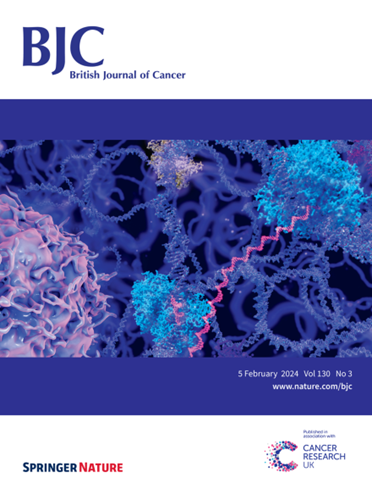Intention to have blood-based multi-cancer early detection (MCED) screening: a cross-sectional population-based survey in England
IF 6.4
1区 医学
Q1 ONCOLOGY
引用次数: 0
Abstract
Trials assessing the clinical utility of blood-based multi-cancer early detection (MCED) tests are underway. Understanding public attitudes towards MCED screening is essential if these tests are to be used. We aimed to quantify MCED screening intention and potential barriers and facilitators to uptake. Adults aged 50–77 (n = 958) completed an online survey. The primary outcome was intention to have MCED screening if offered. Psychological variables including barriers and facilitators were assessed. We used logistic regressions to explore associations between socio-demographics and psychological factors and intention. 93.8% of participants said they would ‘definitely’ or ‘probably’ have MCED screening if offered. Intention was significantly associated with previous screening participation and general cancer attitudes but not with socio-demographic factors. Participants were more likely to be intenders if they had higher health motivation, and perceived greater benefits of blood tests. Participants were less likely to be intenders if they perceived greater disadvantages of blood tests, more practical barriers, were more worried about the outcome and more concerned about a positive result. MCED screening intention was high. The lack of socio-demographic variation suggests equitable interest in this type of screening; however, future research should consider how intention translates to uptake.基于血液的多癌症早期检测(MCED)筛查意向:英格兰一项基于人群的横断面调查。
背景:评估基于血液的多癌症早期检测(MCED)临床实用性的试验正在进行中。如果要使用这些检测,了解公众对 MCED 筛查的态度至关重要。我们的目的是量化MCED筛查的意向以及接受筛查的潜在障碍和促进因素:方法:年龄在 50-77 岁之间的成年人(n = 958)完成了一项在线调查。主要结果是如果提供 MCED 筛查,是否有意接受。我们还评估了包括障碍和促进因素在内的心理变量。我们使用逻辑回归法探讨了社会人口统计学和心理因素与意向之间的关联:结果:93.8%的参与者表示,如果接受 MCED 筛查,他们将 "肯定 "或 "可能 "接受筛查。筛查意向与之前参与筛查的情况和对癌症的一般态度有明显关系,但与社会人口因素无关。如果参与者有更高的健康动机,并认为血液检查有更大的益处,那么他们就更有可能成为意向者。如果参与者认为血液检测的弊端更大、实际障碍更多、更担心结果以及更担心阳性结果,那么他们的意向性就会降低:母婴健康教育筛查的意向很高。缺乏社会人口学差异表明,人们对此类筛查的兴趣是公平的;然而,未来的研究应考虑如何将意向转化为接受率。
本文章由计算机程序翻译,如有差异,请以英文原文为准。
求助全文
约1分钟内获得全文
求助全文
来源期刊

British Journal of Cancer
医学-肿瘤学
CiteScore
15.10
自引率
1.10%
发文量
383
审稿时长
6 months
期刊介绍:
The British Journal of Cancer is one of the most-cited general cancer journals, publishing significant advances in translational and clinical cancer research.It also publishes high-quality reviews and thought-provoking comment on all aspects of cancer prevention,diagnosis and treatment.
 求助内容:
求助内容: 应助结果提醒方式:
应助结果提醒方式:


